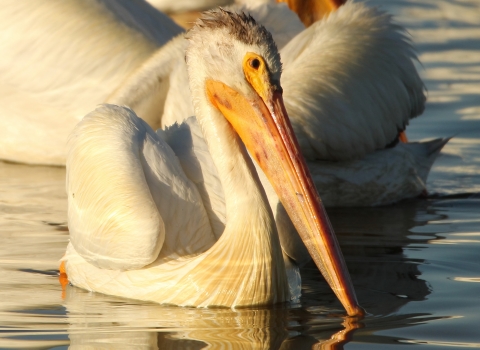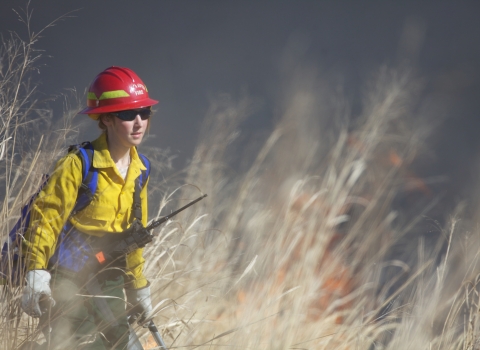Sacramento, California — An acrylic painting of an American Wigeon is California’s entry in the 2023 Federal Junior Duck Stamp Conservation and Design Program art contest. Michelle Lin, age 16, of Fremont, California, won Best of Show with her work titled, "Glimpse of Temperance”. Kwon’s sponsor is Irvington High School instructor Kimberly Parker.
Students entering the contest also submit a conservation message with their artwork. Sophia Fan, age 12, from San José, California, wrote the winning message — “Each act of conservation is a bright brush stroke on the canvas that is our future.” Fan’s sponsor is Visionary Arts’ instructor Helen Yang.
This year’s virtual competition received approximately 260 entries from students throughout the state. Twelve judges from various organizations including the U.S. Fish and Wildlife Service (Service), U.S. Geological Survey, Santa Rosa Junior College, Laney College, Saved by Nature, and more, worked together to select this year’s winners. Lin’s painting and Fan’s conservation message will represent California in the National Junior Duck Stamp Design Contest taking place on April 21, 2023. The national winner’s design will be made into the annual Federal Junior Duck Stamp.
Administered by the Service, the Junior Duck Stamp Conservation and Design Program is a dynamic art and science-based curriculum designed to teach wetlands habitat and waterfowl conservation to students in kindergarten through high school. The annual program provides resources to educators to help students learn about the outdoor world and their connection to waterfowl, wetlands, and habitat conservation. In California, the Refuges’ Visitor Services team at the Service’s Pacific Southwest Regional Office in Sacramento facilitates the program.
The Junior Duck Stamp is sold by national wildlife refuges, the U.S. Postal Service and the Amplex Corporation for $5. All proceeds are used to fund environmental education programs, reward students for their work, and expand the program. More information on the federal program can be found at https://www.fws.gov/program/junior-duck-stamp.
The U.S. Fish and Wildlife Service works with others to conserve, protect, and enhance fish, wildlife, plants, and their habitats for the continuing benefit of the American people. For more information about our work and the people who make it happen, visit https://www.fws.gov/office/pacific-southwest-region-headquarters or connect with us via Facebook, Twitter, YouTube, and Flickr.


